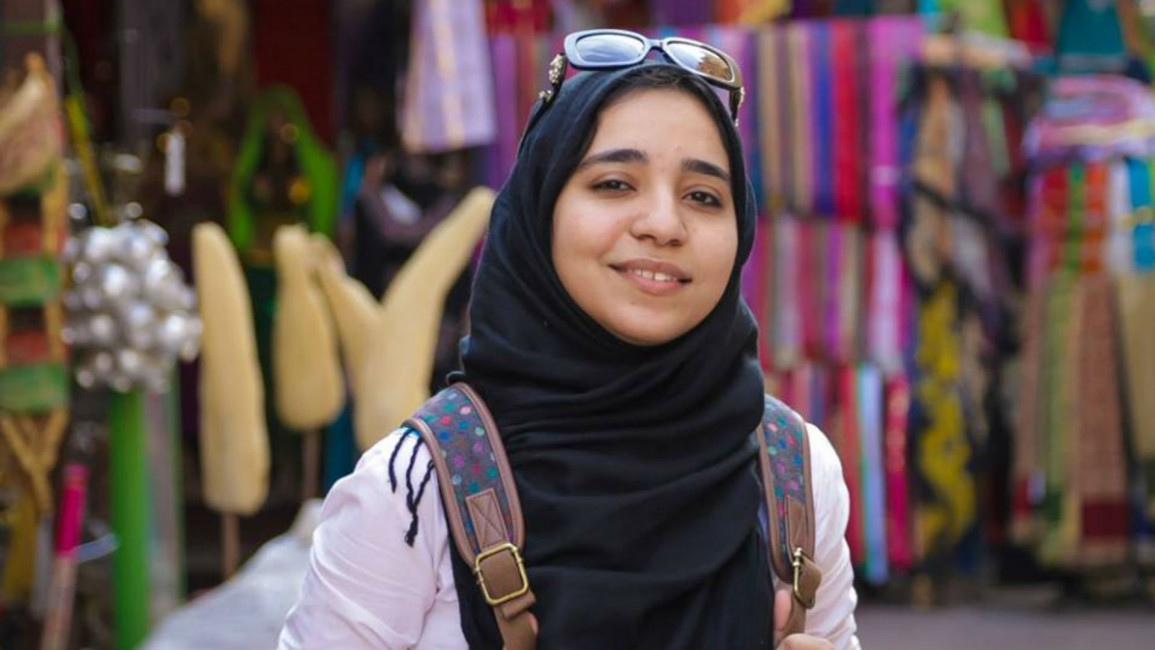Cairo court orders release of journalist Israa al-Taweel
An Egyptian court ordered the release of student and amateur photographer Israa al-Taweel on Saturday.
Presiding Judge, Hassan Fareed, ordered 23-year-old Taweel's release pending her trial on charges of disseminating false news and belonging to a terrorist organisation - in reference to the Muslim Brotherhood.
The court's decision comes after Taweel spent nearly seven months in detention.
Taweel's detention and recent tearful appearance after the court extended her jailing for 45 more days had unleashed widespread calls for her freedom.
After she was arrested on June 1, Egyptian authorities were said to be "preventing" Taweel from receiving the required medical care that could prevent her from becoming permenantly disabled, according to a November report by Amnesty International.
Taweel sustained a debilitating bullet wound while covering protests marking the third anniversary of the January 2011 Revolution.
She has had to use a wheelchair for months.
However, the court decision bars Taweel from leaving her home without prior police permission.
In early June, Taweel's family said she had mysteriously disappeared while on a picnic in Cairo. Two weeks later, she appeared inside a prison near Cairo in a pre-trial detention.
Under a draconian counterterrorism law in Egypt, the government imposes severe restrictions on journalists and others reporting on "terrorist" attacks who include details or statistics that differ from those announced by the state.
Those who do so could face at least two years in prison.
The law effectively bans journalists from collecting information from different sources, including eye witnesses and families, to challenge the government's narrative.
At least 18 journalists are already in detention on charges that include "broadcasting false information", which is not a recognised offence under international law.
Last week, Egypt's Press Syndicate reported that 32 journalists are being jailed in Egypt, including 18 in connection with their job.
The government has repeatedly claimed the detained journalists were in prison for criminal offences.



